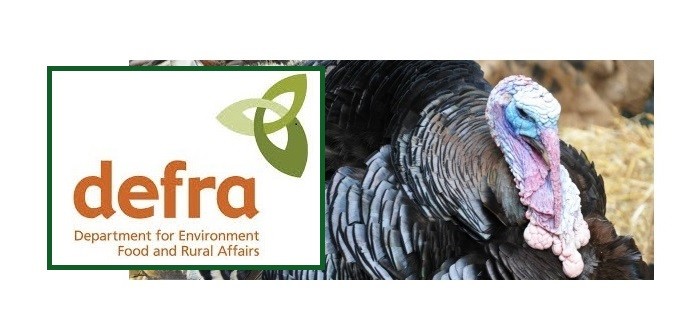Producers have been warned pigs sharing premises where avian flu has been detected in poultry could be culled if they are found to be carrying the disease.
Pig farmers could also be required to undertake costly cleansing and disinfecting procedures, if avian flu is found on premises where both pigs and poultry are present.
The NPA has been seeking clarification from Defra about the situation for pig farmers, as the H5N8 strain of the disease has been confirmed at various poultry premises over the winter.
These include three linked premises on a commercial game farm in Lancashire, three separate poultry farms in Lincolnshire and backyard flocks in North Yorkshire and Carmarthenshire (more details here). A number of pig farms have been caught up in restrictions put in place around these premises.
Defra advice
Defra has now provided more information regarding premises keeping pigs when avian flu has been confirmed in birds kept on same premises.
Infected premises: If a premises has High Pathogenicity Avian Influenza (HPAI) confirmed in poultry, even if just one chicken, the premises will be under restriction and confirmed as an HPAI infected premises (IP) and the bird(s) will be culled (if not already dead) and removed for disposal by APHA followed by preliminary cleaning and disinfection (C&D).
Cleansing and disinfecting: Then C&D is required of the area where the bird(s) were kept and any equipment that the poultry had contact, while bedding will have to be disposed of. This is at the owner’s expense.
Depending on where the birds were kept and ranged, C&D could involve areas where pigs are kept. So the worst case scenario is that birds were allowed access to fields or buildings where the pigs are kept. As part of C&D, the legislation may therefore require C&D of those areas.
That does not mean that APHA would automatically cull the pigs, although that is a legally permitted option.
Movement restrictions, testing and culling: Pig movements would be restricted on the IP: No person shall move to or from the premises and no person shall move any mammal, vehicle or equipment to or from the premises unless the movement is licensed by a veterinary inspector or by an inspector under the direction of a veterinary inspector.
- There is a requirement to test pigs at premises where HPAI is confirmed.
- Pigs cannot be moved off the restricted IP unless they have tested negative
- Pigs testing negative could only move off the premises (eg, to slaughter or another premises) after a veterinary risk assessment and granting of a movement licence
- If the pigs are found to be infected with HPAI, APHA has legal powers to require culling – whether that occurs, or whether they may be moved, would be decided on a case-by-case basis with veterinary risk assessment by APHA.
- Pigs killed under Section 32 of the Animal Health Act are eligible for compensation.
Defra concluded: “The strong take-home message for farmers and pig keepers is that they should be aware, and take account, of the risks of keeping poultry and pigs on the same premises.
“If they do keep them on the same premises, it is very important that they are kept totally separate and that indirect contacts, for example, through people or equipment are also prevented.”
NPA advice
NPA chief executive Zoe Davies reiterated the need for pig farmers to be aware of the risk and to take pre-emptive action to reduce it.
She said: “The Defra advice confirms pigs can become infected with HPAI and it is a concern that pigs on a shared site will have to be tested and could be culled if proven to be positive.
“I would like to reiterate our advice to pig producers to remove any hens around a pig unit.”




